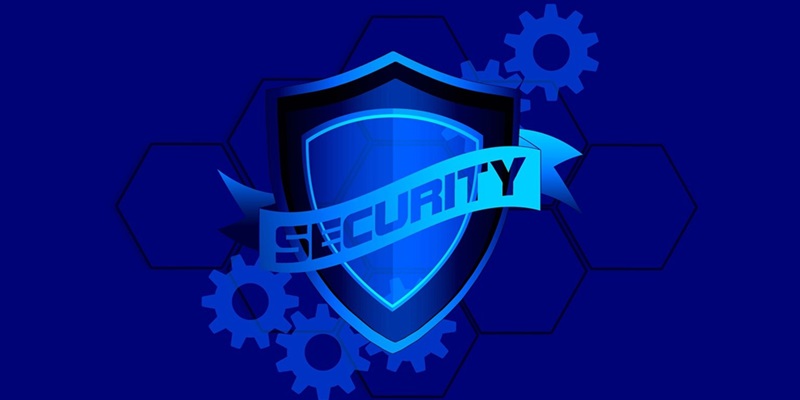Today, secure defense supply chain management plays a critical role in ensuring the safety and resilience of military operations. However, the complexities and vulnerabilities inherent in these supply chains call for innovative solutions. This is where blockchain integration emerges as a disruptive technology with the potential to transform the defense industry. With its decentralized nature, immutability, and trust-based framework, blockchain offers solutions to the critical challenges faced by defense supply chains.
The Benefits of Blockchain Integration in Defense Supply Chains
At the core of blockchain technology lies decentralization, which eliminates the need for a single point of control and offers unprecedented transparency and trust. The immutability of blockchain records ensures that once information is recorded, it cannot be altered, providing a reliable source of truth. This decentralized and immutable infrastructure addresses key concerns surrounding data integrity, accountability, and trustworthiness in defense supply chains.
Addressing Critical Challenges in Defense Supply Chains
Defense supply chains are characterized by their complexity and scale, often involving numerous stakeholders and geographically dispersed operations. Blockchain integration enables efficient and secure tracking and verification of every transaction, ensuring end-to-end visibility. This transparent and tamper-proof system mitigates the risk of counterfeit parts, reduces bureaucratic delays, and improves the accuracy of delivery timelines – all crucial factors in military operations.
Increased Security and Resilience in Military Operations
Implementing blockchain in supply chain management bolsters security, reducing vulnerabilities that can be exploited by sophisticated hackers and infiltrators. By leveraging cryptographically protected transactions and consensus-based validation, blockchain enhances the integrity of supply chain applications. This robust security framework ensures that only authorized entities can access and modify supply chain data, significantly reducing the risk of unauthorized access or malicious interference.
Enhancing Security Through Blockchain Integration
One of the most significant threats to defense supply chains is the potential infiltration by cybercriminals. Blockchain technology’s inherent security measures make it exponentially more difficult for hackers to compromise the system. Its cryptographic protocols and distributed network structure fortify the defense infrastructure, offering a resilient barrier against cyber threats. By incorporating blockchain into supply chain management, sensitive data and critical military operations can be safeguarded effectively.
Improved Security in Supply Chain Applications
Traditional supply chain systems are susceptible to fraud and manipulation due to centralized databases that are vulnerable to insider threats. Blockchain’s transparency and immutability make it nearly impossible to alter or falsify records, ensuring data integrity. By adopting blockchain technology, defense supply chains can introduce a secure and auditable system that enables stakeholders to track and verify the provenance of assets and components at every stage of the supply chain.
The Need for Careful Planning and Scalable Blockchain Infrastructure
The complexity and scale of defense supply chains demand careful planning and a scalable blockchain infrastructure. Implementation must take into account the varying requirements of different stakeholders, compatibility with existing systems, and the ability to handle a significant volume of transactions. Collaborative efforts between defense agencies, technology partners, and industry experts can ensure effective implementation and optimize the benefits of blockchain integration.
Effective Governance Frameworks for Supply Chain Integrity
For blockchain integration to be successful in defense supply chains, effective governance frameworks are paramount. Consensus mechanisms, role-based access controls, and standards for data sharing and privacy must be established. These frameworks will ensure that all stakeholders adhere to agreed-upon protocols, maintain data accuracy and integrity, and uphold the highest standards of security – ultimately contributing to the overall resilience of defense supply chains.
Utilizing Decentralized Ledgers for Commodity and Asset Movement
Blockchain’s decentralized ledger provides real-time visibility into the movement of commodities and assets throughout the supply chain. This visibility enables stakeholders to track and trace critical components, ensuring their integrity and preventing counterfeit or compromised items from entering defense supply chains. Real-time visibility also facilitates efficient maintenance, repair, and overhaul operations by providing accurate information on the status of assets and their required maintenance schedules.
Proactive Risk Assessment and Mitigation
Blockchain integration empowers defense agencies to proactively assess and mitigate risks throughout the supply chain. By analyzing data available on the distributed ledger, agencies can identify potential bottlenecks, vulnerabilities, or areas prone to disruption. This real-time risk assessment enables prompt decision-making, allowing for quick responses, alternative logistical arrangements, and streamlined operations. As a result, the resilience of defense supply chains is significantly enhanced, optimizing military readiness and capabilities.
Improved Supply Chain Resilience
The combination of increased security, real-time visibility, and proactive risk assessment provided by blockchain integration ultimately improves the overall resilience of defense supply chains. By streamlining operations and minimizing vulnerabilities, blockchain technology reduces the likelihood of disruption or compromise. This resilience ensures the consistent availability of critical supplies, enhancing military preparedness and enabling effective response in dynamic and challenging environments.
Blockchain technology offers significant potential in enhancing the security and efficiency of defense supply chains. Its decentralized nature, immutability, and trust-based framework address critical challenges faced by defense procurement processes. By implementing blockchain, defense agencies can strengthen the security of supply chain management, safeguard against hackers, and improve visibility, risk assessment, and operational resilience. Embracing blockchain integration is pivotal for the defense industry to adapt and thrive in an increasingly interconnected and threat-ridden world.

